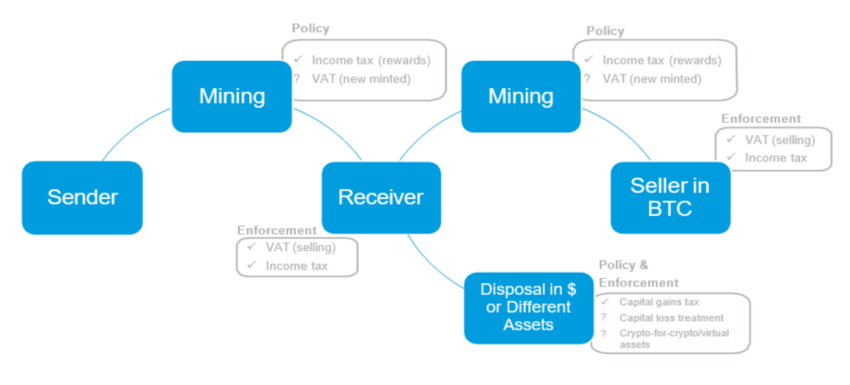And in the blockchain industry, there is still a looming notion that US regulators may try to “kill cryptocurrencies” or stifle the growth of this innovative sector. This concern has been further exacerbated by the Biden administration's controversial proposal to impose a heavy tax on Bitcoin and cryptocurrency miners.
Contrary to popular belief, the legal environment shaping the future of cryptocurrencies is far from a death sentence. Instead, it denotes a complex dance between innovation and compliance
High taxes may kill crypto innovations
With election year dynamics slowing legislative progress, the industry is craving bills that can provide clear direction. Although industry leaders remain optimistic about the future, stressing the importance of blockchain companies being prepared to comply with final regulations, the Biden administration aims to impose a tax targeting bitcoin and cryptocurrency miners.
The move sparked widespread concern among investors in the industry, fearing it would cripple the growing sector. The US Treasury's 2025 revenue proposal sets a 30% tax on electricity costs incurred by cryptocurrency miners. This is a move that could have seismic effects on the industry.
“Any company that uses computing resources, whether company-owned or leased from others, to mine digital assets will be subject to an excise tax equal to 30% of the costs of electricity used to mine digital assets,” the US Treasury Department wrote.
Read more: How to Minimize Cryptocurrency Tax Liability: A Comprehensive Guide

This tax, called the Digital Asset Mining Energy (DAME) tax, is viewed by many as the death knell for cryptocurrency mining. Critics say such a tax would stifle innovation and force mining operations to relocate. This is a scenario similar to the mass migration that China witnessed in 2021.
Therefore, the United States could see its dominance diminish as miners seek more suitable environments.
US Senator Cynthia Lummis said: “The proposed punitive 30% tax on digital asset mining would destroy any foothold this industry has in America.”
As the debate continues, the broader implications for the US economy and its position in the cryptocurrency market remain uncertain. The Biden administration's proposal signals a cautious approach to the cryptocurrency industry. As Bitcoin and cryptocurrency valuations resurface, this regulatory dilemma reflects a pivotal moment for the blockchain industry.
However, Joshua Kirshner, general counsel at the Helium Foundation, told BeInCrypto that the future of the industry does not hinge on the operational complexities of centralized platforms. Instead, it relies on developing blockchain applications with tangible, value-added use cases.
Adhere to cryptocurrency regulatory guides
Despite the legal scrutiny on centralized entities, other projects that extend beyond token trading or mining appear to be undeterred, suggesting a broader, more resilient blockchain ecosystem.
“The blockchain industry is much more interesting than just Binance, Coinbase and other centralized trading platforms. While it plays an important role in the ecosystem, the future of the industry will not be defined by token trading, but by the real use cases that It creates value.”
The focus of regulatory actions, such as the CFTC's settlement with Binance, on specific wrongdoing highlights that not all aspects of the blockchain sector are under siege. According to Kirchner, this serves as a reminder that cryptocurrency companies must adhere to strict regulatory requirements. These include sanctions compliance, anti-money laundering procedures, and “know your customer” protocols.
Kirchner emphasized the distinctive nature of blockchain projects, particularly their immutable properties, which require a compliance-first approach from the beginning. Unlike Web2 entities that may adjust legal frameworks post-launch, blockchain initiatives require an integrated compliance view, reflecting the sector's unique regulatory challenges.
“With Web3, it is critical to have experienced in-house counsel early on working with engineering and product teams to ensure that products are designed with compliance in mind before they are released with immutable features,” added Kirchner. “Putting regulatory enablers in A blockchain project is much more difficult than putting together a typical Web2 company.”
Furthermore, the prevalence of insider trading within Web3 mirrors traditional industries, underscoring the universality of legal standards across technological models. This points to a broader need for legislative clarity and adaptability to accommodate the distinctive features of blockchain technology.
Kirchner advised new companies entering the cryptocurrency market to “power of attorney” in light of the current regulatory environment.
“The need for innovation and growth does not conflict with regulatory compliance and investor protection. The problem facing the industry is that regulatory uncertainty makes compliance difficult or impossible, especially at a global level. Hire in-house counsel early to provide strategic advice as you build,” Kirchner concluded. “We acknowledge that the industry is still new and things will change rapidly over the next few years,” he said.
Read more: Cryptocurrency regulation: what are the advantages and disadvantages?
Ultimately, the drive for regulatory clarity and compliance imperative reflects a shared vision of a future in which blockchain technology can flourish responsibly and innovatively within a supportive legal framework. The question is not whether US regulators are trying to stamp out cryptocurrencies, but rather how they, together with industry stakeholders, can collaboratively foster their growth and integration into the fabric of global finance and technology.
Disclaimer
Following the Trust Project guidelines, this article provides opinions and views from industry experts or individuals. BeInCrypto is dedicated to transparent reporting, but the opinions expressed in this article do not necessarily reflect the opinions of BeInCrypto or its employees. Readers should independently verify information and consult with a professional before making decisions based on this content. Please note that our Terms and Conditions, Privacy Policy and Disclaimer have been updated.

